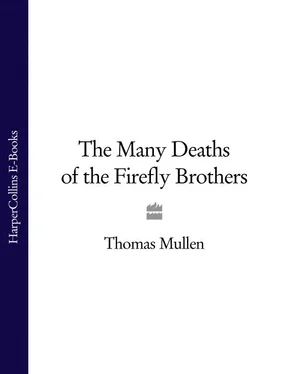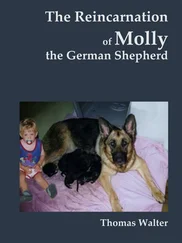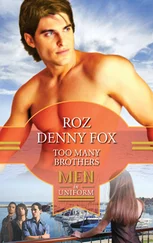But “something new” wound up being something old: bootlegging again. And things didn’t work out quite as Jason had hoped. He would soon do a second stretch in jail for it, but this time there would be no visits from his old man.
Years later, the resurrected Firefly Brothers were driving just north of Lincoln City to the quiet town of Karpis. Even the most devastated of cities seemed to have at least one gleaming suburb like this, the lawns watered and mowed, the Cadillacs washed and waxed. People out here had heard of the depression but didn’t entirely believe the stories.
At the edge of town, where a few restaurants and taverns clung to the one narrow road leading north into emptiness, sat the safe house run by Jason’s old bootlegging mentor, Chance McGill. Chance did a little of This and a little of That. He’d been jailed for This during the early twenties, but he was acquitted of That a few years back, and these days he operated his popular restaurant-nightclub, Last Best Chance, with minimal interference. There were bands three nights a week and dancing showgirls twice, and the card playing that went on in back rooms was permitted by the brass buttons as long as they got their take. A veritable House of Seven Gables of the Midwest underworld, Last Best Chance was as sprawling as its owner’s many pursuits; a dance room had been added a few years back, and then an outdoor patio, and then another bar over here, and some rooms for the ladies over there, until the building was a nearly block-long labyrinth of pleasure and deception. Rumor had it that Chance had designed the floor plan to be as confusing as possible should he and his special guests ever need to elude raiding cops.
Chance and his chatty wife lived on the top floor; also on that floor were several bedrooms that hot boys could stay in, for prices ranging from five bucks to thirty, depending on exactly how much heat was on them. Dillinger had once stayed here, as well as Baby Face Nelson and even Pretty Boy Floyd, far away from his southwestern territory. But no one had doled out more hide-me money than Jason and Whit, until Chance had regretfully told them, back in May, that the volcanically hot Firefly Brothers should start bunking elsewhere.
Jason and his gang often communicated through Chance, leaving messages about when and where they should regroup. Chance knew anyone worth knowing and never seemed to have trouble locating them when the right person asked.
Jason idled in front of the building. A bottle-blond zaftig was strolling toward the entrance.
“Say, doll, do me a favor,” Jason called to her. “Tell Mr. McGill that Officer Rubinsky would like a word. And to bring some smokes.”
She gave him a look as empty as an alcoholic’s shot glass. Then her heels clacked away. It was burlesque night, and the Firesons were treated to a blast of tarnished horns when she opened the door.
Two minutes later another brass blast, longer this time because one of the men was holding the door open. A second was beside him, and the third, Chance McGill himself, was holding a box of cigars and a level gaze aimed cautiously at the Pontiac.
Officer Rubinsky was one of the cops Chance paid protection money to; Chance could see this wasn’t the cop’s wheels.
“We look like a couple of Syndicate torpedoes,” Whit said under his breath. “Probably scaring the hell out of him.”
“Good. It’ll make him easier to read.”
Chance was in his early fifties but had managed to age with the grace of a silent-film star. Usually he moved with a thespian’s confidence, fluidity to every gesture, but now he stepped slowly, as if under water. A thin man, his gray hair was trimmed short and his wrinkles were ironed flat in the neon light. Then his blue eyes lit red.
“Jason?” He was ten feet from the Pontiac.
“Not so loud.” Jason grinned. “Tell your loogans you’re okay. And get in—we have a crazy story for you.”
“You weren’t followed?”
“Only by the Grim Reaper—he tailed us leaving the cemetery. C’mon, get in.”
Chance waved off his men and opened the back door. Jason eased off the brake and began driving the calm streets of Karpis.
“How’s tricks?” Jason asked. Whit had turned halfway in his seat to keep an eye on the restaurateur.
“Not so good as they are for you two, apparently. Jesus. I even offered a prayer for your eternal souls.”
“I’m sure our souls appreciate it.”
“What happened?”
“Look, Chance,” Jason said. “No one needs to know about the crazy hallucinations you’ve been having. Everyone can just go on mourning the dead Firefly Brothers, got it? They can send us all the prayers they like.”
“Understood. That Houdini you pulled in Toledo was impressive, boys, but this one is by far the best.”
“Thanks. And we aren’t going to tell you how we did it, no offense.”
“I wouldn’t ask.”
Jason pulled into a small park and turned around to face his passenger as Chance handed out cigars. Jason hadn’t had a smoke since before the cooling boards, and just by biting off the end he saw that Chance knew how to keep his cops happy.
“Heard anything on Owney?” Jason asked.
Chance produced a lighter and that produced light. “What kind of anything?”
“We were supposed to meet him last week in Detroit.” Jason left it at that. He still couldn’t remember if the meeting had occurred, but the fact that the Points North cops had found the full seventy thousand dollars on the brothers meant that they’d never paid Owney his share, so either the meeting hadn’t happened or it had gone very badly indeed.
“He hasn’t been arrested,” Chance said. “And he ain’t ratted that I know of.”
Even with the windows down they were consumed by delicious smoke.
“Know where he is?”
Chance didn’t answer.
“We still owe him his stake,” Jason explained, not mentioning that they no longer had the money.
Chance exhaled a cloud. They were like three bored dragons in a too-small cave. “There’s a cottage he and his wife have used.”
“In the U.P.?” Jason raised his eyebrows. Chance made an expression that was not fully a confirmation. “Jesus, then he’s an idiot.”
Jason had met Owney Davis in prison during his second bootlegging rap, before graduating to bank jobs. Let out two weeks after Jason, Owney became a part of the Firefly Gang from the beginning. He was a loyal friend whose life ambition was to form a new church, in the hope of spiritual as well as financial enrichment. Jason found it difficult to believe Owney would turn Judas. But he also found it difficult to believe that, with all the heat on them, Owney and his wife would run to the same Michigan lake house they’d used as a hideout months earlier, when the heat had first intensified.
“What’s the word on Marriner, Brickbat, and Roberts?” Jason asked.
“Look, Jason, if someone did stooge on you, it coulda been anyone. Ten grand is a lot of money.”
Ten grand was the most recent reward the Justice Department had posted for information leading to the Firefly Brothers’ arrest. It had started at fifteen hundred, then doubled after two cops were killed during a November bank job in Calumet City, then doubled again in the early spring, when the feds belatedly realized that a fatal February bank job in Baton Rouge had actually been pulled off by the Firefly Brothers. Louisiana was far outside their usual territory, of course; after a busy autumn in the Midwest, the brothers had spent much of the winter hiding out, first in Florida and then in New Orleans. It had been a wise time to hide: the U.S. attorney general and a bureaucrat named J. Edgar Hoover from something called the Bureau of Investigation were making speeches about the need for a stronger national police force, something capable of investigating the complex cases that bumbling state squads couldn’t handle. A federal crime-fighting agency would conquer gangsterism just as the New Deal would conquer the depression, Hoover claimed. When the Firesons’ money grew scarce—and the exoticism of the South was over-powered by their nostalgia for home—Jason had started scouting banks in Baton Rouge, leading to the reunited gang’s first endeavor in more than two months. After that, the price on the brothers’ heads continued to rise as stories proliferated about their escapades, some of them accurate and some of them the falsely attributed crimes of other, less famous outlaws. Finally, the feds had rounded the price off to an even ten, causing the brothers to wonder if that number would continue to appreciate for as long as they drew breath, or if it would eventually crash like the stock market if people lost interest. Or if they simply disappeared.
Читать дальше












